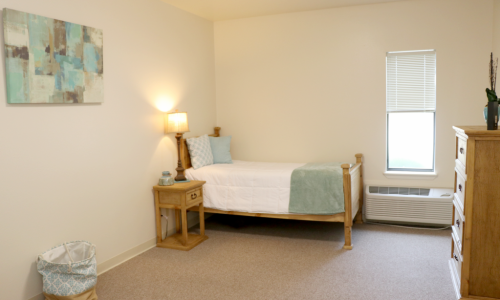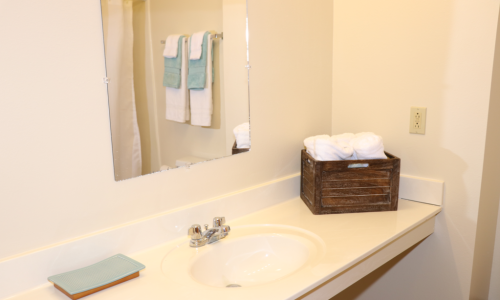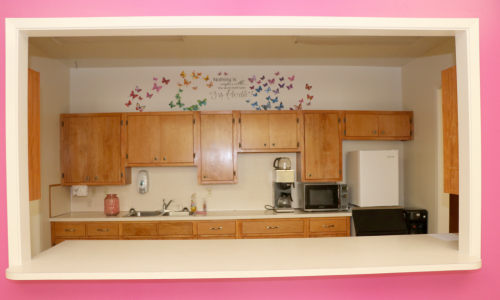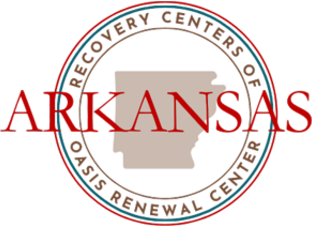






Recovery Centers of Arkansas - Sibley Center
Treatment Focus
This center primarily treats substance use disorders, helping you stabilize, create relapse-prevention plans, and connect to compassionate support.
Primary Level of Care
Offering intensive care with 24/7 monitoring, residential treatment is typically 30 days and can cover multiple levels of care. Length can range from 14 to 90 days typically.
Claimed
Recovery.com has connected directly with this treatment provider to validate the information in their profile.
Treatment Focus
This center primarily treats substance use disorders, helping you stabilize, create relapse-prevention plans, and connect to compassionate support.
Primary Level of Care
Offering intensive care with 24/7 monitoring, residential treatment is typically 30 days and can cover multiple levels of care. Length can range from 14 to 90 days typically.
Provider's Policy
RCoA's compassionate team of admission specialists are here to help cut through the confusion and provide the answers you need. The Oasis Renewal Center is a division of Recovery Centers of Arkansas. When calling your insurance company to verify coverage, please refer to Recovery Centers of Arkansas, as that is how they are listed in their networks. In addition to the providers listed above, they also accept Coventry, HealthSCOPE, LifeSynch, Municipal Health Benefits Fund, and UMR.
Recovery Centers of Arkansas - Sibley Center
Recovery Centers of Arkansas - Sibley Center
About Recovery Centers of Arkansas - Sibley Center
Established in the 1950s when the first Alcoholics Anonymous group in Arkansas was formed, Recovery Centers of Arkansas (RCA) has a longstanding presence in the recovery community. The organization is guided by a mission to "enable individuals to live free from the abuse of alcohol and/or other drugs by providing treatment programming and other professional services within an atmosphere of dignity and respect." RCA offers a wide range of programs, including residential, intensive outpatient, partial hospitalization, gender-specific sober living, and sober living apartments.
A Comprehensive Residential Program
The Cottage at Sibley Hole is Recovery Centers of Arkansas' newest addition to its women-only sober living facilities, adding 16 new beds and combining comfortable accommodations with comprehensive services. RCA’s commitment to providing housing is rooted in the positive outcomes these programs have shown. Specifically designed for women transitioning from rehabilitation, long-term housing has proven highly effective in maintaining recovery post-treatment. Residents at The Cottage are in the outpatient phase of their recovery, where they are employed, participate in local support groups, and fully embrace their new, sober lives.
Serving Veterans
Additionally, RCA has a contractual arrangement with the Veterans Affairs department to provide supplemental support services to veterans actively undergoing treatment at a nearby Veterans Hospital. These services, crucial during non-treatment hours, include supervised housing, nutritious meals, transportation, and laundry facilities, all vital for fostering a supportive environment that enhances the primary treatment received at the hospital.
Center Overview
Treatment Focus
This center primarily treats substance use disorders, helping you stabilize, create relapse-prevention plans, and connect to compassionate support.
CARF Accredited
CARF stands for the Commission on Accreditation of Rehabilitation Facilities. It's an independent, non-profit organization that provides accreditation services for a variety of healthcare services. To be accredited means that the program meets their standards for quality, effectiveness, and person-centered care.

Supportive Medication for Recovery
Medication-Assisted Treatment (MAT) is an evidence-based approach that pairs FDA-approved medications with counseling to treat addiction. The medications are used to reduce cravings, ease withdrawal symptoms, or block the effects of substances. More about MAT
Methadone
Naltrexone
Buprenorphine
This center accepts patients receiving MAT prescribed elsewhere for opioid use disorder, but does not provide MAT.
Note: Treatment centers offer different forms of MAT—such as oral tablets, dissolvable films, or monthly injections—and their policies can vary based on state regulations, provider preferences, and insurance coverage. Because of these differences, it's best to contact the center directly to learn what options are available and what might be right for your situation.
Insurance Accepted
Cash Pay Rates
Estimated Cash Pay Rate
Center pricing can vary based on program and length of stay. Contact the center for more information. Recovery.com strives for price transparency so you can make an informed decision.
Levels of Care






Your Care Options
Specializations
Alcohol
Using alcohol as a coping mechanism, or drinking excessively throughout the week, signals an alcohol use disorder.
Drug Addiction
Drug addiction is the excessive and repetitive use of substances, despite harmful consequences to a person's life, health, and relationships.
Women only
Women attend treatment in a gender-specific facility, with treatment delivered in a safe, nourishing, and supportive environment for greater comfort.
Who We Treat
Women only
Women attend treatment in a gender-specific facility, with treatment delivered in a safe, nourishing, and supportive environment for greater comfort.
Approaches
Twelve Step
Incorporating spirituality, community, and responsibility, 12-Step philosophies prioritize the guidance of a Higher Power and a continuation of 12-Step practices.
Gender-Specific
Separate treatment for men or women can create strong peer connections and remove barriers related to trauma, shame, and gender-specific nuances.
Therapies
1-on-1 Counseling
Patient and therapist meet 1-on-1 to work through difficult emotions and behavioral challenges in a personal, private setting.
Family Therapy
Family therapy addresses group dynamics within a family system, with a focus on improving communication and interrupting unhealthy relationship patterns.
Twelve Step Facilitation
12-Step groups offer a framework for addiction recovery. Members commit to a higher power, recognize their issues, and support each other in the healing process.
Substances We Treat
Alcohol
Using alcohol as a coping mechanism, or drinking excessively throughout the week, signals an alcohol use disorder.
Drug Addiction
Drug addiction is the excessive and repetitive use of substances, despite harmful consequences to a person's life, health, and relationships.
Languages
Care Designed for Your Needs
Personal Amenities
Amenities
Special Considerations
Gender-specific groups
Patients in gender-specific groups gain the opportunity to discuss challenges unique to their gender in a comfortable, safe setting conducive to healing.
Activities
Smoking and Vaping Policy













